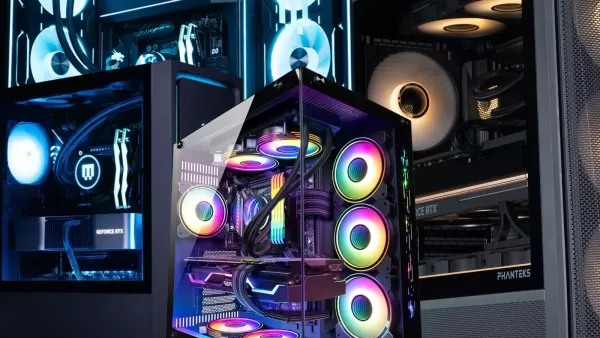Recently, Microsoft increased pricing across its entire Xbox Series console lineup along with numerous accessories worldwide, while also confirming select new games would carry an $80 price tag this holiday season. This followed PlayStation's similar regional console price adjustments, preceded by Nintendo increasing Switch accessory costs and introducing its first $80 game.
The tariff-driven price increases have officially arrived, and keeping track of the numerous adjustments across gaming products has become overwhelming. To help clarify the situation following Xbox's announcement, I consulted industry analysts about the underlying causes, realistic expectations for gaming expenses in the coming year, and the overall health of the video game industry. The reassuring news is that neither games, consoles, nor major platforms are disappearing.
However, the less welcome update confirms we'll be paying significantly more for gaming experiences - and nearly everything else.
Understanding the Pricing Surge
My initial question to analysts was fundamental: what prompted Microsoft's substantial price increases across hardware and accessories currently? The consistent response focused on tariffs - specifically, fluctuating import duties under U.S. trade policies, compounded by rising development and manufacturing expenses.
"Considering Microsoft manufactures consoles in Asia, these price adjustments were inevitable," noted Dr. Serkan Toto, CEO of Kantan Games. He highlighted the strategic advantage of announcing increases during current economic uncertainty: "Microsoft smartly leveraged this climate to implement global pricing adjustments simultaneously rather than staggering them across regions."
Joost van Dreunen, NYU Stern professor and author of the SuperJoost Playlist newsletter, interpreted Microsoft's comprehensive approach as strategic repositioning: "This represents a holistic recalibration responding to tariff pressures, consolidating consumer reactions into a single news cycle while maintaining competitive positioning in an increasingly service-driven market where hardware serves primarily as an entry point."Additional analysts confirmed tariffs as the primary driver. "The pre-holiday timing allows partners to adjust while consumers mentally prepare," observed Manu Rosier of Newzoo. Rhys Elliott from Alinea Analytics noted: "Higher software prices help offset tariff-impacted hardware costs - this represents necessary financial balancing."
Microsoft is addressing the situation comprehensively rather than implementing gradual changes.“
Piers Harding-Rolls from Ampere Analytics outlined additional contributing factors: "Persistent inflation and supply chain costs combine with competitive pressure from Switch 2's upcoming launch and PS5's recent price adjustments. The U.S. sees steeper percentage increases due to specific tariff impacts, while EU/UK adjustments focus more on entry-level consoles."
Potential Follow-Through
Regarding PlayStation's potential response, analysts overwhelmingly anticipated similar moves. Elliott predicted broader industry shifts: "This signals the beginning of widespread $80 games. Market data shows players willingly pay premium prices for early access - publishers who can implement higher price points will."
Following our discussions, EA stated it would maintain current pricing for the immediate future.
Elliott explained emerging pricing strategies: "We'll likely see more variable pricing, with $80 launches followed by gradual discounts, extending premium games' sales cycles beyond initial releases."For hardware, Niko Partners' Daniel Ahmad noted: "While Sony has adjusted prices in multiple regions outside the U.S., market importance may delay domestic increases - though we wouldn't rule them out." Omdia's James McWhirter added: "With Microsoft acting first, Sony now has cover to adjust PS5 pricing in the critical U.S. market."
Market Resilience
Despite concerns about affordability, analysts remained optimistic about the industry's stability. Microsoft's recent 'This Is An Xbox' campaign indicates strategic evolution toward service platforms rather than hardware dependence. As Harding-Rolls observed: "While higher prices may slightly impact sales, anticipated titles like GTA 6 will drive significant engagement regardless."
Spending patterns are expected to adapt rather than decline. "Consumers may become more selective, favoring subscriptions and long-term service games over individual premium purchases," Rosier suggested. Elliott emphasized gaming's price resilience: "Historical data shows gaming remains inelastic - spending persists even during economic challenges, though allocation across formats may shift."
Emerging markets show particular promise. Ahmad highlighted growth potential in Asia and MENA regions, while McWhirter noted established platforms' flexibility: "Nintendo can effectively utilize pricing tools like Switch Online Game Vouchers to accommodate higher game costs."
However, Circana's Mat Piscatella offered a cautious perspective amid economic uncertainty: "Players may increasingly favor existing free-to-play ecosystems like Fortnite or Roblox, while rising essential costs could reduce discretionary gaming budgets. Current forecasting models face exceptional volatility."
The prevailing consensus suggests the gaming industry will weather these challenges through adaptable business models and enduring player engagement, though individual spending behaviors may evolve significantly.








